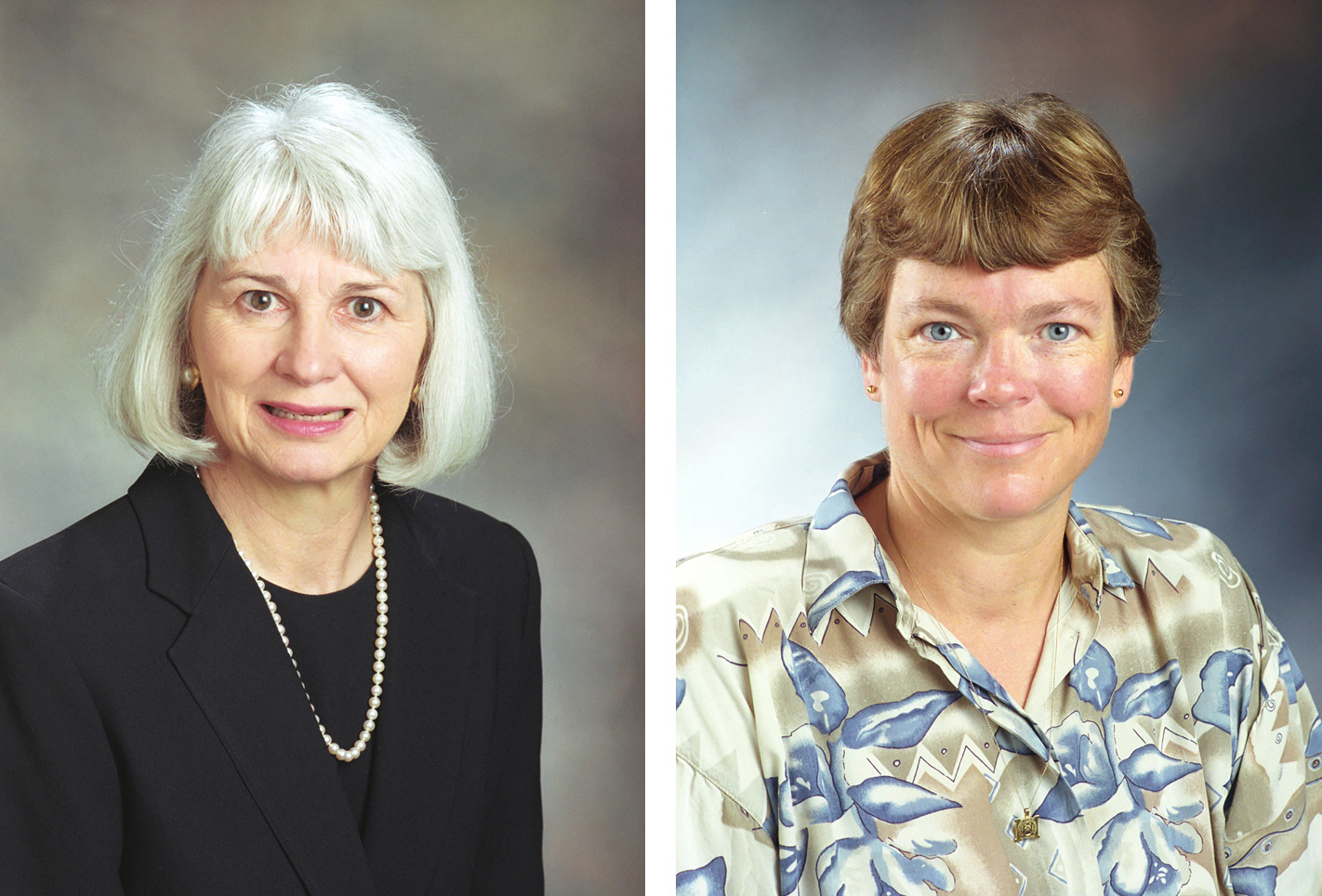Contact: Phil Hearn

Sandra Harpole and Donna Reese
A National Science Foundation grant of nearly $400,000 will help Mississippi State propel academically talented but low-income students toward careers as computer scientists, mathematicians and engineers.
The $399,972 grant, effective this past Aug. 1, will fund 30 graduate and undergraduate scholarships over a four-year period to help students from underrepresented groups overcome economic barriers to high-tech education.
"For Mississippi to grow economically and fully develop the state's potential, opportunities for our citizens to prepare for today's highly competitive, technology-oriented workforce must be provided," said Donna Reese, a computer science and engineering professor, and principal investigator for the project.
"Industries like Nissan and American Eurocopter have been attracted to the state and will require a workforce for, not only these companies, but related suppliers," added Reese, citing a growing demand for computer science, engineering and math graduates.
Fellows for the MSU program--called Increasing Participation in Computer Science, Engineering and Mathematics Through Scholarships--will be selected from applicants recruited from state and regional high schools and community colleges, historically black institutions, and four-year institutions.
"The majority of the scholarships will be awarded to undergraduates, with graduate student awards being limited to those who provide evidence of economic hardship," explained Reese.
Participating in the program will be the eight operating departments and two centers in the Bagley College of Engineering, and the Department of Mathematics and Statistics in the College of Arts and Sciences. Administration of the project will be through the university's Center for Science, Mathematics and Technology.
Fellows will be mentored one-on-one by faculty and their peers. They will participate in research and design projects, present results of their research professionally, and interact with industry. MSU's Cooperative Education and Career Services offices will aid fellows in career placement.
"The broader impact of this project will be to increase the numbers of underrepresented students with the skills necessary to be successful in computer science, engineering and mathematics upon graduation," said Sandra Harpole, CSMT director and a co-principal investigator for the grant project.
A major avenue for recruiting high school students will be through teacher workshops conducted by Harpole as part of earlier projects funded by NSF.
"Mississippi State University's history of interaction with K-12 students and teachers, and successful interactions with two-year colleges and HBCUs will provide the basis for recruiting," said Harpole, also interim associate vice president for research.
Data from the 2000 census show Mississippi has a black population of 36.3 percent and 51.7 percent of the state population is female. MSU ranks higher than the national average--9 percent to 4.5 percent--in the percentage of bachelor of science engineering degrees awarded to African-Americans. Also at MSU, 20.5 percent of B.S. engineering degrees are awarded to women, compared to a 16.4 percent national average.
"Even though the university is higher than the national average in enrolling and graduating African-American students, these scholarships are needed to provide educational opportunities for underrepresented students to help meet the demand for computer scientists, technicians, engineers and mathematicians in order to contribute to the growth of the economy of Mississippi, the surrounding region and the nation," said Reese.
Other co-PIs on the grant include Corlis Johnson, associate mathematics professor, and associate head and graduate coordinator of the department of mathematics and statistics; and Judy Smith, financial aid and scholarships coordinator. Executive secretary Deborah Weeks and research associate Lori Hill Kerley, both with the CSMT, will handle administration and evaluation of the project, respectively.
For more information on the project, contact Reese at (662) 325-7514 or Donna Reese.